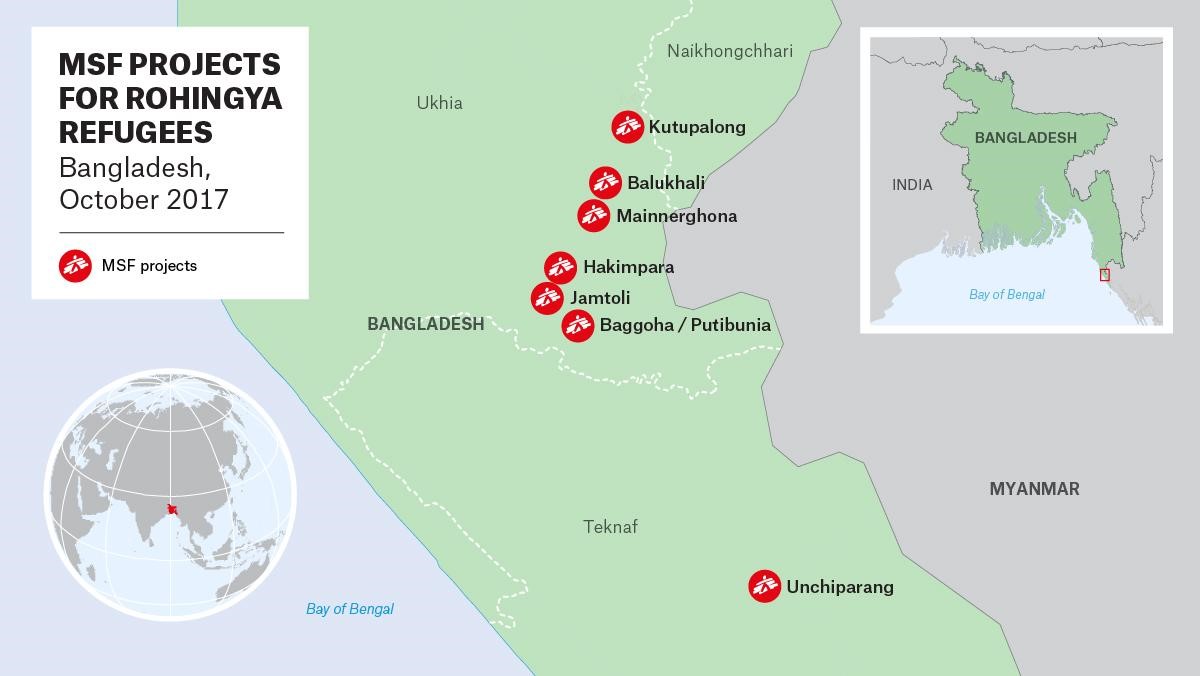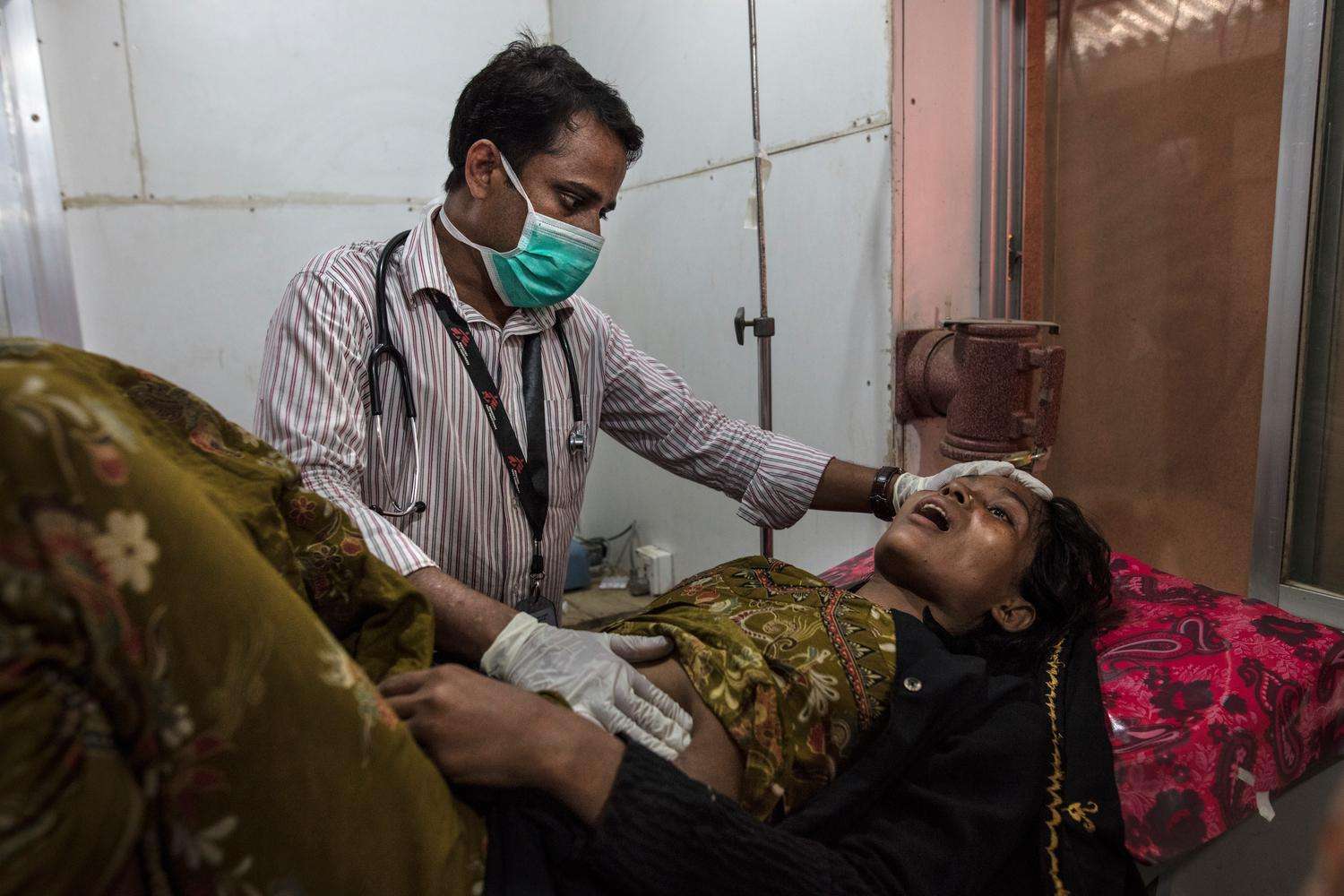In response to the unfolding humanitarian crisis in Cox’s Bazar, Bangladesh, Doctors Without Borders/Médecins Sans Frontières (MSF) has massively increased its operations in the country. This scale-up follows the influx of more than 582,000 Rohingya refugees since August 25, after a wave of targeted violence against the Rohingya in neighboring Myanmar’s Rakhine state.
In nearly two months MSF has treated more than 30,000 patients in the Cox’s Bazar area, effectively five times the number of people who sought treatment at MSF facilities during the same period last year.
"We are concerned that if the response to this crisis does not increase to meet the huge demand for shelter, clean water, medical care, and food, then the risk of disease outbreaks looms, and, with that, a public health emergency," said MSF emergency coordinator Robert Onus.
MSF has hired an additional 800 staff, bringing the total number of staff on the ground in Cox’s Bazar from around 200 people to 1,000.

MSF has also rapidly expanded inpatient capacity at its Kutupalong medical facility from 50 to 70 beds, with new wards and isolation capacity for infectious diseases. The inpatient health facility, which provides basic primary and secondary health care services and is MSF’s largest health facility in Cox’s Bazar, has been running since 2009. A second inpatient facility with a focus on mother and child health is under construction in Balukhali and is expected to open in the coming days.
Two more inpatient facilities are also planned to open in the region to meet the increasing demand for secondary health care. Additional health posts and mobile clinics have already been set up to meet the growing need for primary health care in Kutupalong, Balukhali, Mainnerghona, Jamtoli, Unchiparang, and along the entry points at the border.
"Outside of the medical response, improving water and sanitation is an integral part of our attempts to prevent the spread of disease," said Onus. "With a population this large, access to adequate water and sanitation facilities is crucial, and as the number of people fleeing continues to rise, this work will continue well into December."
To this end, MSF has built 200 latrines, 34 boreholes, and a gravity flow water supply system, while also trucking in an average of 100 cubic meters of water daily to the settlements from MSF’s Kutupalong medical facility. Between now and the end of 2017, 100 deep tube wells, 300 shallow tube wells, and 1,000 latrines will be constructed in the Balukhali and Kutupalong makeshift settlements.
Read More: For Rohingya Refugees in Bangladesh, the Need for Clean Water Is Still Extreme
"Given the size of the population [in Kutapalong and Balukhali] at least 8,000 latrines are required to help stop the spread of disease due to poor sanitation and hygiene," said Onus. "But with a population of more than 582,000 refugees on top of the existing 200,000 who arrived previously, huge gaps in services and infrastructure remain."




